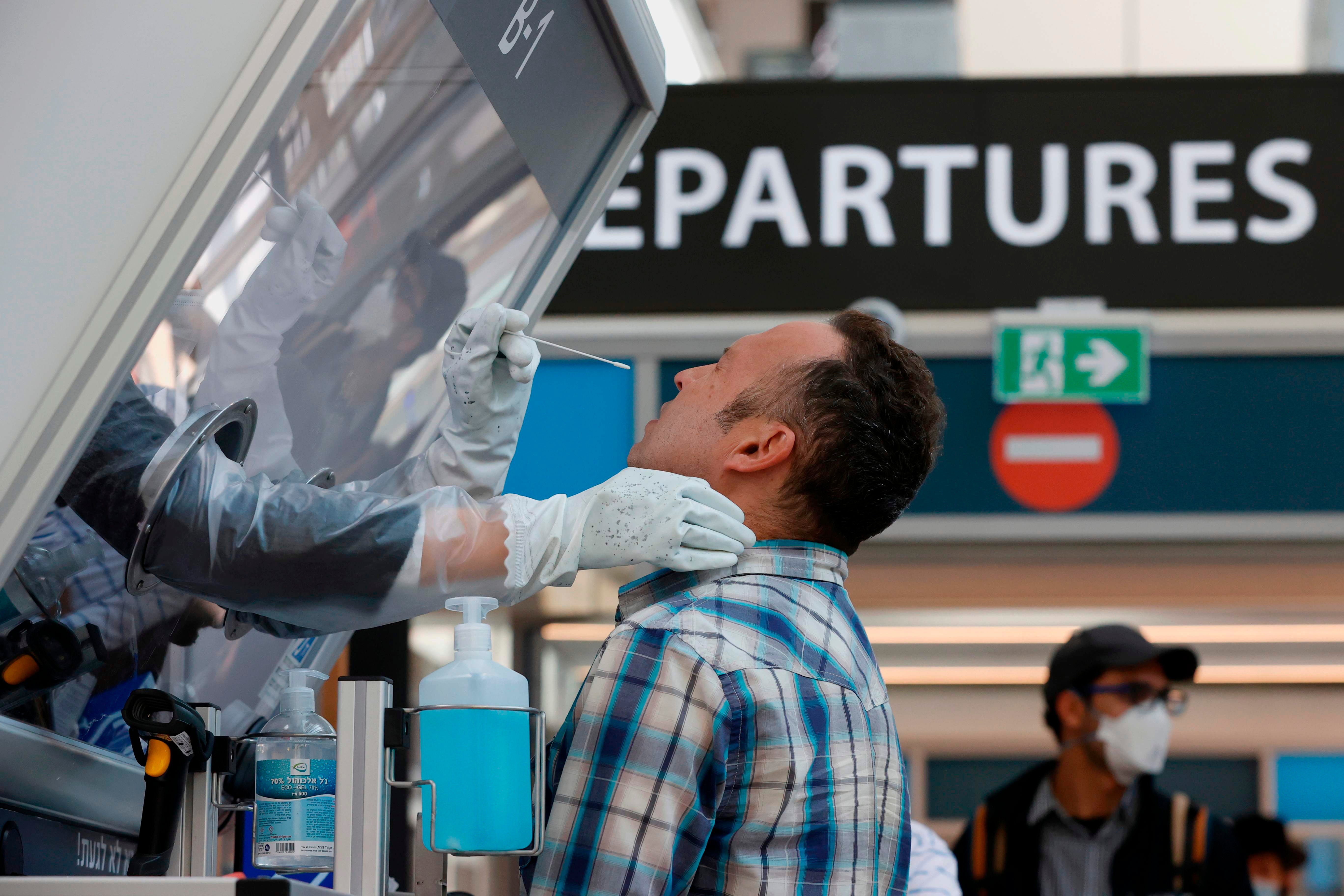Covid: WHO looks at possible ‘e-vaccination certificates’ for travel
Experts warn against issuing ‘immunity passports’ but said proof of vaccination could help open up international borders

Your support helps us to tell the story
From reproductive rights to climate change to Big Tech, The Independent is on the ground when the story is developing. Whether it's investigating the financials of Elon Musk's pro-Trump PAC or producing our latest documentary, 'The A Word', which shines a light on the American women fighting for reproductive rights, we know how important it is to parse out the facts from the messaging.
At such a critical moment in US history, we need reporters on the ground. Your donation allows us to keep sending journalists to speak to both sides of the story.
The Independent is trusted by Americans across the entire political spectrum. And unlike many other quality news outlets, we choose not to lock Americans out of our reporting and analysis with paywalls. We believe quality journalism should be available to everyone, paid for by those who can afford it.
Your support makes all the difference.The World Health Organisation has warned against countries issuing "immunity passports" to people who have recovered from Covid-19, but is investigating the prospect of using electronic certificates to flag those who have been vaccinated.
"We are looking very closely into the use of technology in this Covid-19 response, and one of them is how we can work with member states towards an e-vaccination certificate," a WHO medical expert told a virtual briefing in Copenhagen on Thursday.
Dr Siddharta Sankar Datta, a regional adviser on diseases and immunisation, said the technology could potentially be used to open up international travel.
Last month the WHO signed an agreement with Estonia to work on "digital innovations in the Covid-19 response", one of which involves the prospect of using vaccination certificates for those who have had a coronavirus jab.
The governments of countries including the UK, the US, Germany and Italy have suggested they could use immunity passports as a route back to normal life following the pandemic.
Multiple initiatives to develop health passports are currently underway in Britain and abroad, with ambitions to facilitate the return to work, travel, and large events.
But British researchers on Thursday warned against introducing such passes on a mass basis until coronavirus tests and vaccines are readily available for all.
A report by academics at the University of Exeter said health passports could interfere with fundamental rights, including the right to privacy, the freedom of movement and peaceful assembly, as well as lead to inequality and discrimination.
“Digital health passports may contribute to the long-term management of the Covid-19 pandemic, but their introduction poses essential questions for the protection of data privacy and human rights,” said the report’s author Dr Ana Beduschi, a professor of law.
"They build on sensitive personal health information to create a new distinction between individuals based on their health status, which can then be used to determine the degree of freedoms and rights individuals may enjoy.
"Given that digital health passports contain sensitive personal information, domestic laws and policies should carefully consider the conditions of collection, storage and uses of the data by private sector providers.
"It is also crucial that the communities that have already been badly impacted by the pandemic have swift access to affordable tests and, eventually, vaccines.
"Otherwise, deploying digital health passports could further deepen the existing inequalities in society."
Subscribe to Independent Premium to bookmark this article
Want to bookmark your favourite articles and stories to read or reference later? Start your Independent Premium subscription today.

Join our commenting forum
Join thought-provoking conversations, follow other Independent readers and see their replies
Comments